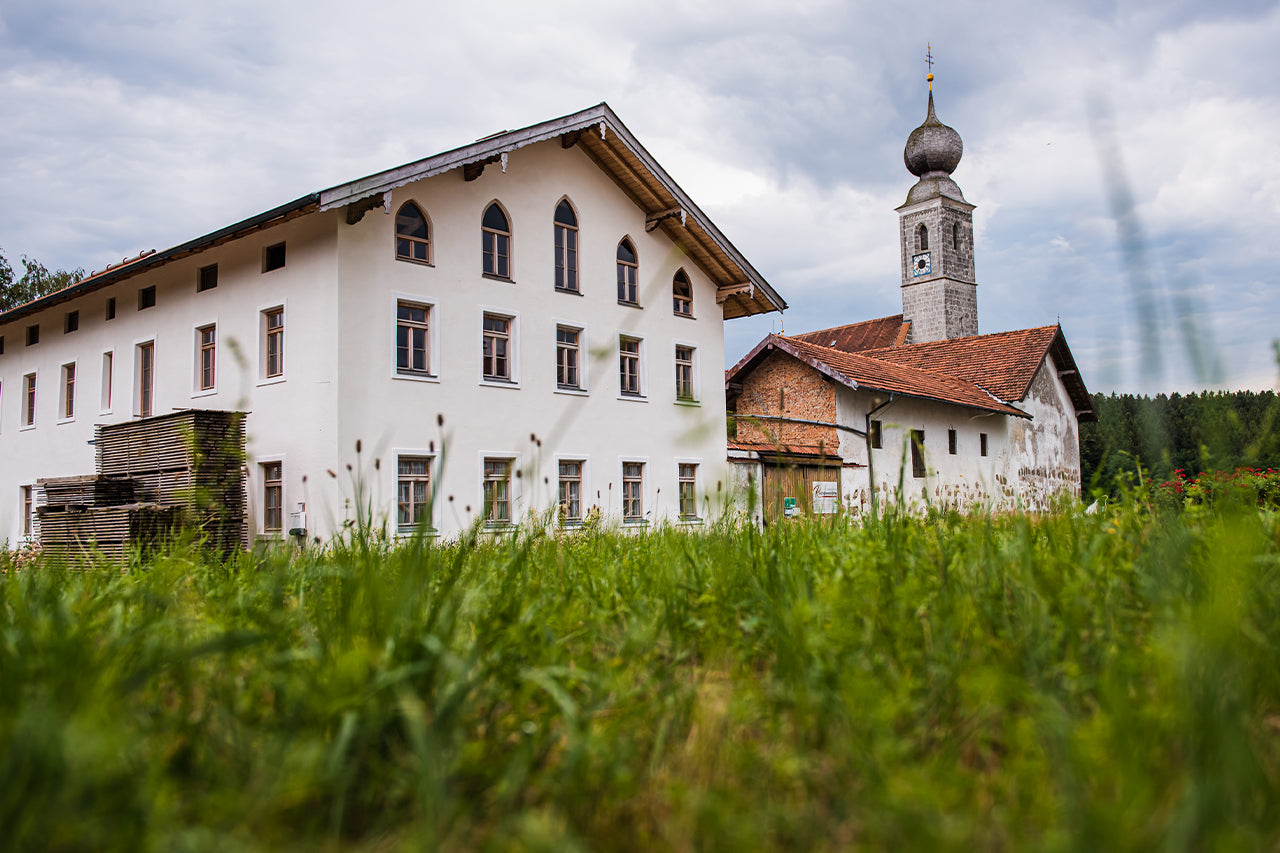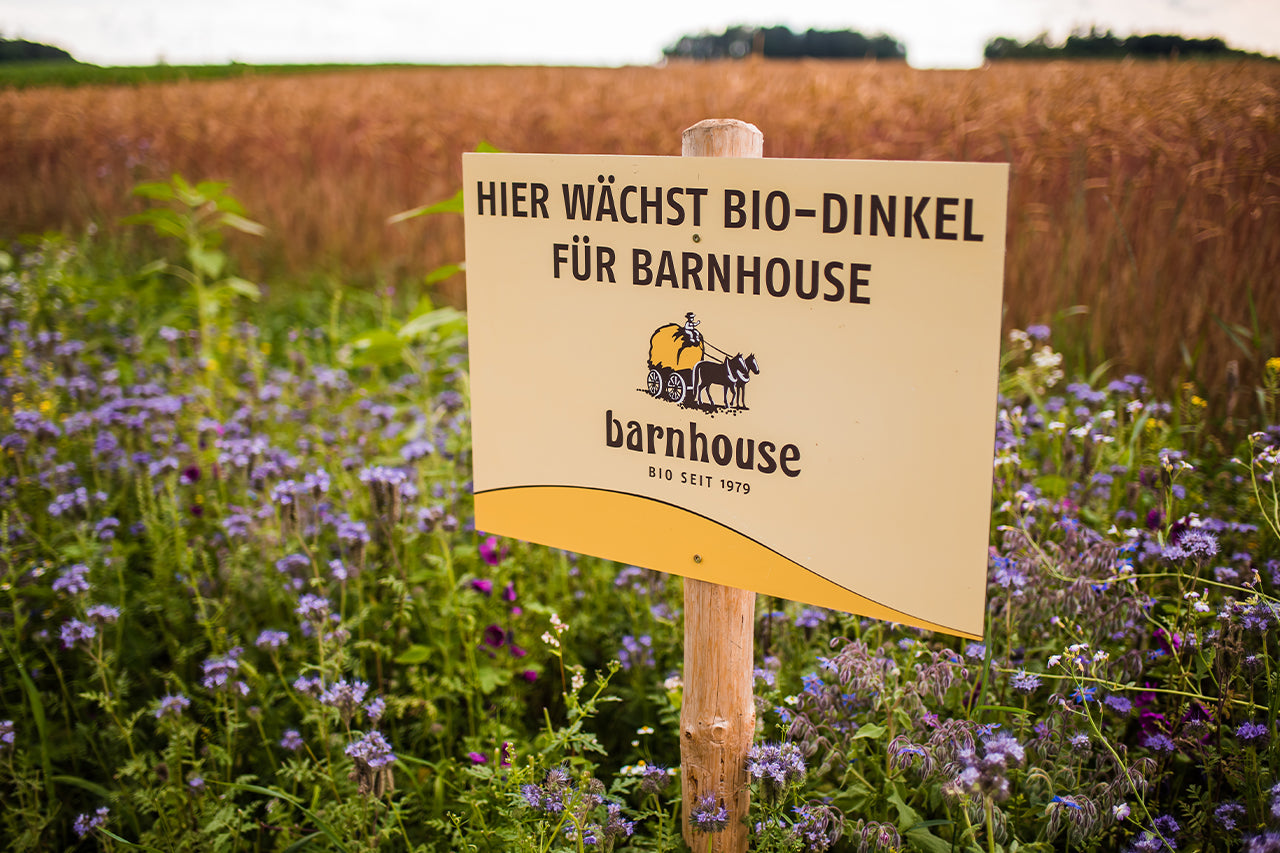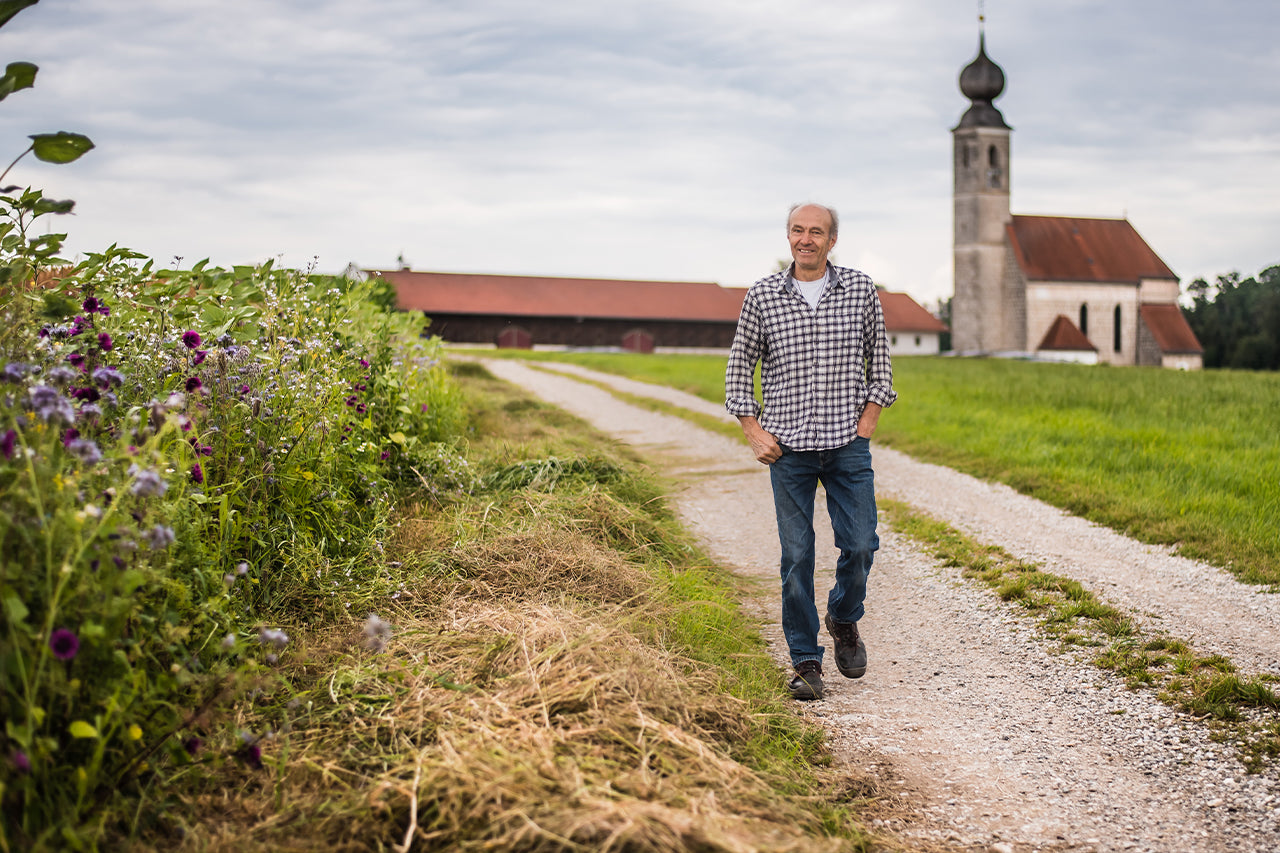The Schwarzmaier estate of Maisenberg goes back to the year 1700, according to the old ownership document available to us, whereby the small village with the two four-sided farms and the church (old noble seat, allegedly former monastery complex) was already mentioned in 913. The present four-sided farm with inn was built around 1890/1900, partly on old walls and has been preserved until today", our partner farmers Luise and Franz Egger proudly explained.
After his school days, the Bioland farmer completed an agricultural apprenticeship and started a family with his wife Luise at the young age of 22. Later, he decided to continue his education and found a new job in banking. In addition to helping out on his parents' farm, Franz worked for various banks in the credit and real estate sector. In 2013, he quit this position and, together with his wife Luise, devoted himself entirely to the renovation of the historic four-sided farm and organic farming.
"My mother approached us again and again with increasing age with the request to take over and continue the farm after all, to avert a sale and a devisiov, a heartfelt wish of my mother. After careful consideration, we decided to take over the farm, which had leased out until then, with its 32 hectares, as an organic farm. We have been practicing organic horticulture for more than 30 years and have always attached great importance to a wholesome and natural way of life.” – Franz Egger on the takeover and conversion of his parents’ farm to organic farming.
Farming methods used by the Egger family
“After various training seminars for organic farming, we have primarily dedicated ourselves to the health of the soil, humus building, regenerative agriculture. I try to work without plowing, with undersowing in the cereals and intercrops for the area rot until the next main crop. Our threshed crops (spelt, oats, malt barley, wheat, field beans, soybeans) are additionally treated with EM
and compost tea, making them more vital and resistant to diseases and pests", Franz describes his farming methods to us.
When they took over the farm, the two of them had already started planting avenues of trees and a meadow orchard. Further planting activities are still planned for the future.
"The restoration of species-rich meadows across via the contract nature conservation program, the planting of trees and shrubs in the cleared landscapes to create habitats again for the partly threatened animal and bird world, is very close to our hearts.”
The fact that nature is always good for surprises is something that the organic farmer has also had to experience firsthand and has suffered one setback or antoher. Nevertheless, Franz is convinced: "Every m² of soil that is cultivated without agricultural poisons can only be a gain for nature and the environment and thus for our children, the following be generation".
Above all, humus build-up and the associated Co² storage will play an increasingly important role in view of the increasing climate change. Humus-rich soils have a much higher water retention volume and can cope much better with long dry periods.
That's what they appreciate about the Barnhouse partnership
"We are happy to be a Barnhouse partner farmer because the possibility of regional marketing without long transport routes makes sense and we would like to support this. The existing supply contracts also represent a certain planning security for us".










